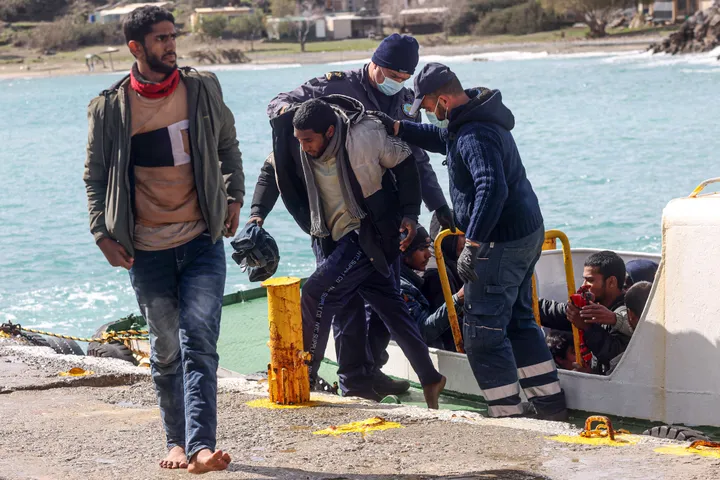Syrians fleeing regime attacks in the rebel-held territory of Idlib have voiced anger at the international community’s seeming inaction to stop the Assad offensive.
Regime forces launched an offensive against rebel areas in the north of the country in late April, killing hundreds of civilians and forcing up to 250,000 people from the region.
Neighbouring Turkey has condemned regime violations of a ceasefire agreement and Turkish officials have been involved in talks with their Russian counterparts, key backers of Assad, to put an end to the bombardment.
While the US has urged Russia to reign in the Assad regime attacks, for Syrians caught up in the violence, Washington’s response is not enough.
“The US and European countries have done nothing to stop the ongoing crimes against us,” said Bassel Alawne, a father of five from Maraat al Nouman in Idlib province.
Since the war began in 2011, the US has intervened militarily in Syria, where it has carried out airstrikes against groups like Daesh and provided training and support to the local affiliate of the PKK terrorist organisation, the YPG, which fights under the banner of the Syrian Democratic Forces (SDF).
However, action against the Assad regime has been rare and limited to airstrikes against a small number of targets after a chemical weapons attack in Khan Shaykhun in Idlib province in 2017.
In the past week, several reports have emerged of chlorine gas use by Assad forces and the US has warned the regime of retaliation if attacks are confirmed.
'Shameful'
For Alawne, who fled the Damascus suburb of Ghouta, which was also targeted with chemical weapons, those retaliatory strikes were nowhere near enough to prevent similar attacks.
He said: “It’s shameful for the US to warn Assad of conducting chemical attacks when the only reason they did not attack him in 2013 after Ghouta, was because they were satisfied he had eliminated his arsenal.
“The Assad regime says that there is an international conspiracy against him, but the real conspiracy is against us here in northern Syria at the hands of the international community who have promised us peace and have failed to deliver.”
Karam Mslate echoed that opinion. The 29-year-old history teacher from Jisr al Shogour said Western states had shown an “irresponsibility” towards the Syrian people.
“The US and EU threats towards the Assad regime if he uses chemical weapons are meaningless and just political statement,” he said.
“We have been betrayed since the world, and the US in particular, did not act against Assad’s use of chemical weapons in Ghouta in 2013.”
Impact on civilians
According to figures released by rights groups in 2017, more than 200,000 civilians were killed in the first six years of the war.
Of those, an overwhelming majority were killed by the Syrian regime, a total of 190,000 people, followed next by Russia, which killed just over 4,000 in that period.
The war has also prompted millions of Syrians to flee the country. More than 3.6 million Syrian refugees live in Turkey, with millions more living in neighbouring Arab states and close to a million in EU states, such as Germany.























